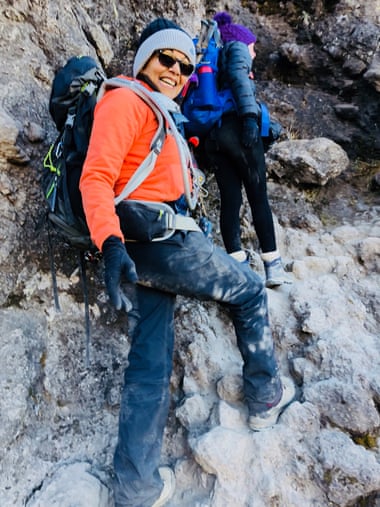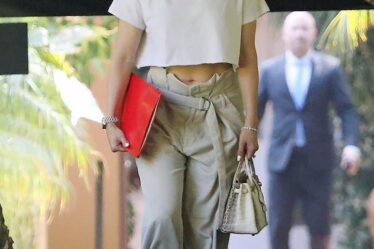
The morning that Devanshi Mavani reached the top of Kilimanjaro, the conditions were bitter. She had set off, like most hikers, the night before to time her arrival at the summit with the sunrise. Immediately, heavy snow began to fall. “Normally people see Kenya on the other side. When we got to the summit, we saw nothing,” she says. “It was like a ski slope. But I was crying with happiness.”
Just 17 months earlier, this trip had seemed impossible. In May 2017, Mavani returned home to Leicester after visiting her younger sister in Oxford and began to feel unwell. Each day was worse than the one before. “But you don’t get flu,” her sister said, and told Mavani to go to a local chemist for tests. The pharmacy sent Mavani straight to her GP, and the GP called an ambulance.
Mavani spent the next seven days in intensive care with diabetic ketoacidosis, a potentially life-threatening state that occurs in people with diabetes when the body begins to run out of insulin. “If it wasn’t for my sister, I wouldn’t be alive,” she says. At 59, Mavani was diagnosed with type 1 diabetes.
The narrow escape felt lucky, but triggered a different crisis. “I struggled. I got really depressed,” she says. “I felt so low, thinking: what am I going to do now in life, stuck with this?”
The news put in jeopardy all Mavani’s hopes of travelling, after her retirement from chartered accountancy the year before. “I had worked all my life. I thought: ‘Great, I can finally do what I want.’” Her son, 25, had qualified in optometry. “I felt free. It was my chance. Everything was working for me. I thought, ‘Hooray, I can enjoy life.’”
But her diagnosis made her scared to leave the house. Her elder sister came to help, but Mavani “couldn’t walk to the local park” without feeling unwell.
Very slowly, over the next few months, Mavani built up from walking around the block to gentle gym classes. It was there that she met a friend, Hazel, who led her to a different understanding of herself. “She said, ‘I’m going to a talk about climbing Kilimanjaro. Do you want to come? Something to get you out of the house?’”
When Mavani returned home that evening, she told her husband, Ketan, that it was something she really wanted to do. “The hike was the following year, when I was turning 60. He said: ‘You’ve got time.’ It was the best thing I did. It took my focus away from worrying about type 1 and being sickly, to something completely different. How am I going to get fit again? How am I going to cope with this huge hike so far outside my comfort zone?”
With Hazel, Mavani began to plan practise hikes and raise sponsorship for the nearby Loros hospice, which organised the trek. Another friend sewed “lovely thermal bags” in which she could keep her medication at the right temperature. Mavani had always wanted to celebrate her 60th by “doing something for my local community” and, after a lot of preparation, she did just that.
During the seven-day trek, Mavani had to inject herself five to eight times a day, injecting more frequently and in smaller quantities as the altitude made her insulin-resistant.
“An hour before summit stage, my sugars were 19. Normal readings should be between four and seven,” she says. Without careful management, Mavani was in grave danger of falling back into diabetic ketoacidosis. “It was –16C outside; I had on layers and layers, including three pairs of gloves. I had to strip everything so I could inject in my stomach, lying on a snowy rock.
“I overcame all that, and it gave me confidence. I thought: ‘I don’t fear the diabetes. If I can do this, I can do anything.’”
Hiking is now a way of life. Mavani recently completed the West Highland Way and the Cotswolds Way, and has booked a trip to Machu Picchu in Peru. Maybe one day she will hike in Kenya. From the top of Kilimanjaro, she should have seen the country where she grew up, where her mother died when Mavani was 10, before she, her sisters and her father moved to England, swapping picnics on Mombasa beach for hikes in the Lake District. “One day, I hope,” she says.
Anything feels possible now for her. “I’m not going to let diabetes define me,” she says. “I’m still going to be who I am.”



